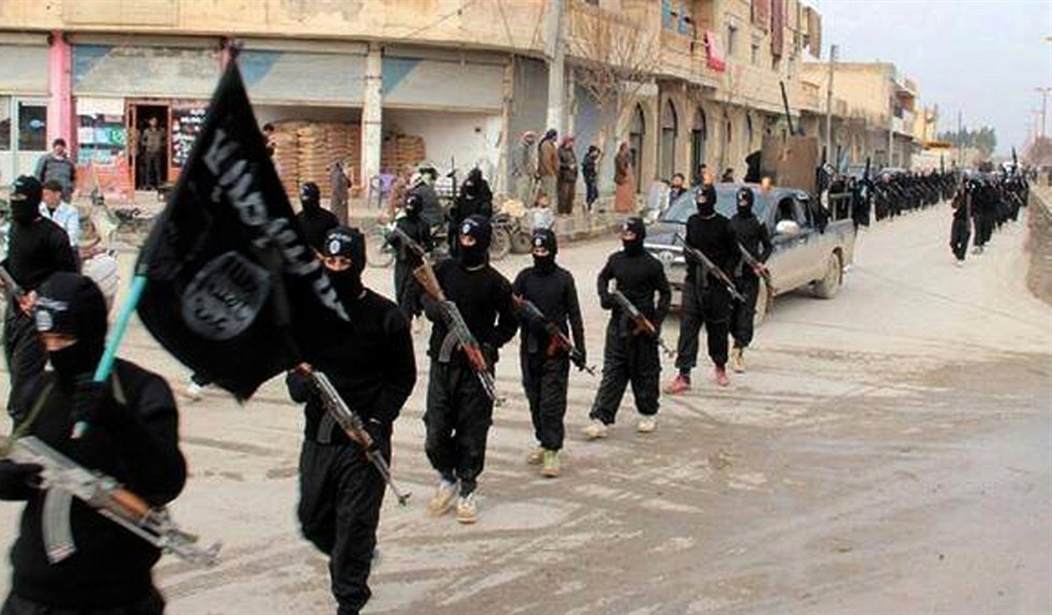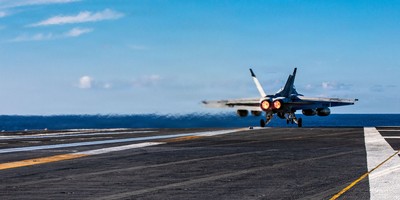The barbaric reign of murder, violent religious persecution and other brutality waged by Islamic State of Iraq and Syria (ISIS) terrorists has caused tens of thousands of refugees to flee for their lives and gutted economic activity in the region.
When the consumers, businesses and entrepreneurs that are needed to sustain economic growth no longer are able to do so, jobs are lost, the availability of goods and services shrinks and investment in capital equipment becomes too perilous to pursue. The beheading of Western aid workers and journalists amid warnings of further attacks aimed at industrialized nations and their people became so ominous that President Barack Obama recently decided to begin bombing raids against ISIS positions with a coalition of other countries to combat the growing threat.
“On top of the unspeakable horrors that ISIS has inflicted on the people of Iraq and Syria, the group has also devastated the livelihoods of entire communities, seizing many lucrative industries and bringing others to a halt,” said Letta Tayler, a senior researcher of terrorism and counterterrorism with Human Rights Watch. “Many families have watched ISIS kill their men and carry off their women and children, only to then be forced to flee their homes and their jobs with little but the shirts on their backs. This adds serious economic insult to horrific emotional injury.”
Human Rights Watch also is among the groups monitoring conditions in the Middle East that have found that ISIS’s financial tentacles have spread far beyond kidnapping and seizures of homes. For example, even before taking Mosul, Iraq, in June, the group routinely taxed local industries in that city, both private and public, to the tune of millions of dollars a year.
Recommended
Numerous credible reports have emerged of ISIS taxing truckers and other drivers, as well as seizing wheat crops, cattle, Arabian horses, tractors and other farm equipment, Taylor said. In addition, ISIS has held an intermittent grip on the regions oil refineries and dams, she added.
In addition, NBC News reported that Sunni militants in northern Iraq gave Christians a zero-sum ultimatum: convert to Islam or die.
Fifteen Iraqi civilians were executed by an ISIS firing squad in Iraq’s al-Ba’aj area, 130 km west of al-Musol, according to an Oct. 6 report.
Eyewitnesses in Mosul, Iraq's second-largest city and the largest Iraqi city currently under ISIS control, told NBC News in phone interviews that insurgents there have committed atrocities. They said several women were executed after an Islamic court found them guilty of committing adultery and that at least seven men were killed because they spoke out publicly against the tyranny of ISIS.
Thousands of people, including many Christians, have been chased from their homes brutally, with people massacred, children dying of thirst and hunger during the flight, women kidnapped and “violence of every kind; destruction everywhere,” said Pope Francis.
The number of people seeking to escape from those conditions actually could include hundreds of thousands of Christians and tens of thousands of members of the Yezidi religious minority. There could be roughly one million people looking for a safe place" to live free from the threat of ISIS forces.
The United Nations has documented close to 60,000 people in Syria and Iraq seeking asylum in other countries this year alone. An estimated 51.2 million people have been forcibly displaced by wars and conflict worldwide by the end of 2013, according to Human Rights Watch.
The head of Fallujah Council, Sheikh Abdul Rahman Nimrawi, said in an Oct. 3 statement that more than 170 documented rapeswere committed by ISIS members against virgin girls in Anbar province over the past two months.
Sadeq al-Shammari, media relations director for the National Alliance of Nineveh, reported documented cases that the “criminal gangs of ISIS” raped 50 girls from the Yazidi religious minority sect in the city of Mosul over the same period.
Al-Shammari added that ISIS leaders threatened the doctors at the Al Salam Hospital in Mosul where the girls were treated “not to leak such information” to the media.
Archbishop Giorgio Lingua, the Vatican nuncio to Iraq, told Vatican Radio in the wake of the U.S. airstrikes that action needed to be taken.
"Otherwise (the Islamic State) could not be stopped," said Archbishop Giorgio Lingua, the Vatican nuncio to Iraq. "But, we should wonder why we have arrived at this point: Was it not a lack of intelligence? Were we not able to understand what was going on? And then: who gave these (Islamic State fighters) such sophisticated weapons?"
Many of the weapons used by ISIS were seized after U.S. forces left the arms with the Iraqi military personnel who the terrorists later overran.
The recent horrific beheadings of kidnapped American journalists James Foley and Steven Sotloff in northern Syria show the high risk of reporting in the region. Those murders bring to 67 the number of journalists killed in Syria from work-related causes since 2011, according to theCommittee to Protect Journalists.
U.S. leaders need to understand not only the risks of intervening militarily in the region but also the real-world consequences of failing to do so.
Paul Dykewicz is the editorial director of Eagle Financial Publications, a columnist for Townhall and Townhall Finance, and the author of a new book, “Holy Smokes! Golden Guidance from Notre Dame’s Championship Chaplain.”

























Join the conversation as a VIP Member